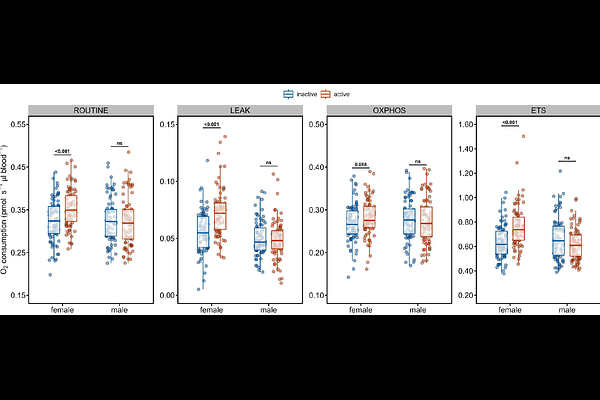Experimental evidence for reproduction to increase mitochondrial respiration, but decrease mitochondrial efficiency, in females of a short-lived bird

Experimental evidence for reproduction to increase mitochondrial respiration, but decrease mitochondrial efficiency, in females of a short-lived bird
Beccardi, M.; Salmon, P.; Vedder, O.
AbstractReproduction is generally considered as one of the most energy-demanding processes, causing a trade-off with survival. Although this \"cost of reproduction\" plays a pivotal role in theory on ageing and life-history evolution, the physiological mechanisms underlying it remain largely unresolved. As mitochondria synthesize 90% of the energy available to eukaryotic cells, their functioning may be crucial in mediating the cost of reproduction. In this study, we therefore experimentally manipulated the reproductive status (gamete production) of male and female Japanese quail (Coturnix japonica), and tested for effects on mitochondrial respiration. We found that reproduction led to an overall increase in mitochondrial O2 consumption in females. This was primarily driven by a large increase in proton leak, as O2 consumption for adenosine triphosphate (ATP) synthesis only increased slightly. Hence, reproductively active females had a severely reduced efficiency in ATP production, compared to non-reproductive females. In males, mitochondrial respiration and its efficiency were unaffected by reproduction, and similar to that in non-reproductive females. We suggest the large increase in proton leak in reproductive females to represent an adaptive mechanism to mitigate the production of reactive oxygen species (ROS), and to be an unavoidable consequence of elevated ATP synthesis. The latter would cause constraints on energy availability for reproductive females, and thereby trade-offs with other energy demanding processes, like somatic maintenance. The absence of effects of reproduction on male mitochondrial respiration confirms the general view that gamete production is less costly for males.